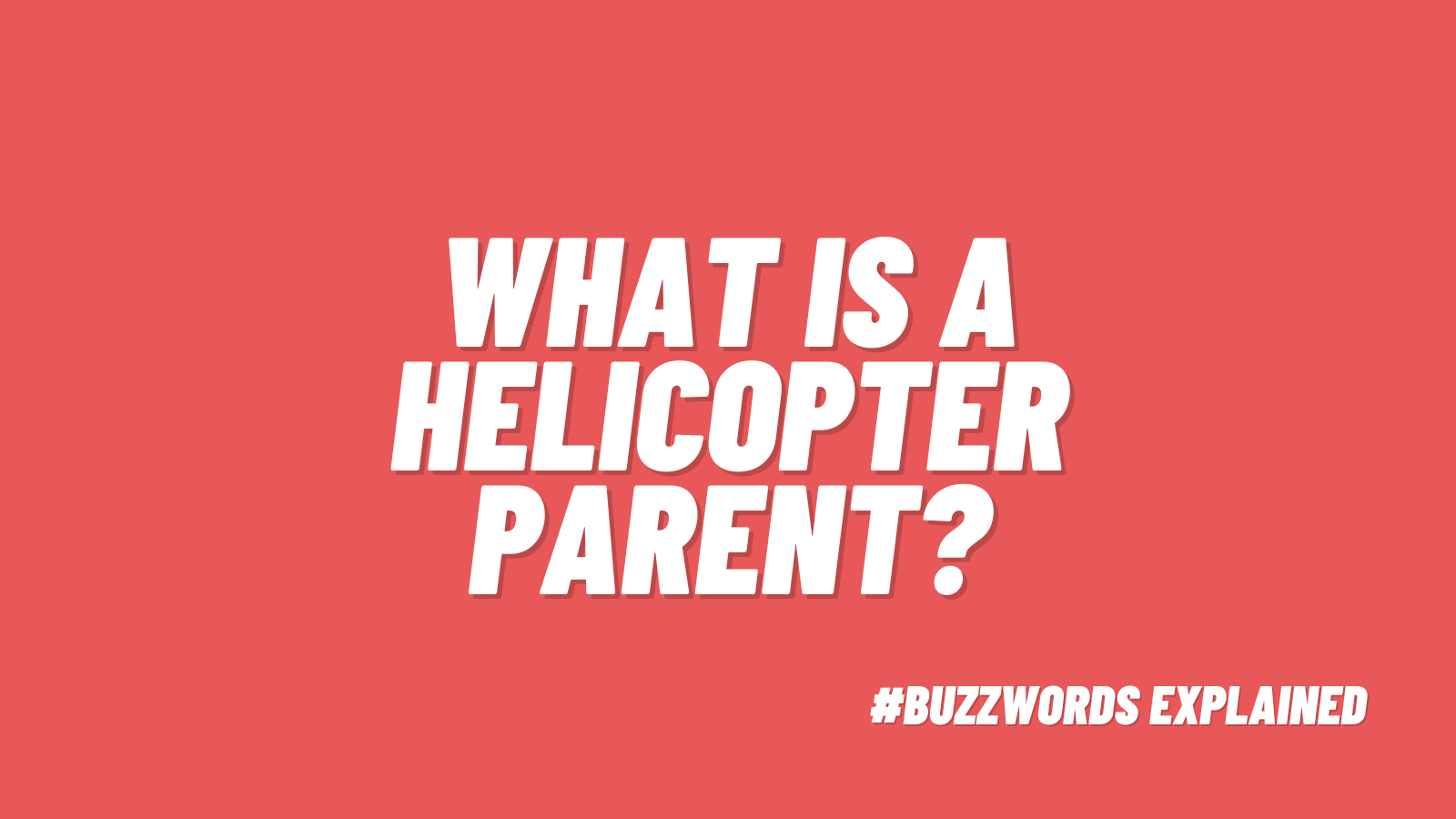In an era when parent engagement is often lacking at school, it seems like an overinvolved parent would be better than nothing. But in fact, it’s often just the opposite. Here’s why a helicopter parent is a real problem for both teachers and students, plus clever ways to deal with them in and out of the classroom.
What is the definition of a helicopter parent?
In 2018, the Oxford English Dictionary added a new term to its pages: helicopter parent. It defined the term as “a parent who pays extremely close attention to their child’s education, problems, etc. and often makes decisions for the child.” They noted that its earliest known use was in an article in a Maryland newspaper called the Frederick Post in 1989.
Like all dictionary definitions, this one is written in clear, unemotional language. But teachers find helicopter parents a pretty emotional topic. These are the parents who call or email multiple times a week, demanding immediate answers and threatening to go to administration when their demands aren’t met. They insert themselves into every aspect of their child’s life, making decisions and navigating everything for them, never letting them find their own way. Like a helicopter, they’re always hovering over their child, trying to control their every move.
Helicopter Parent Examples
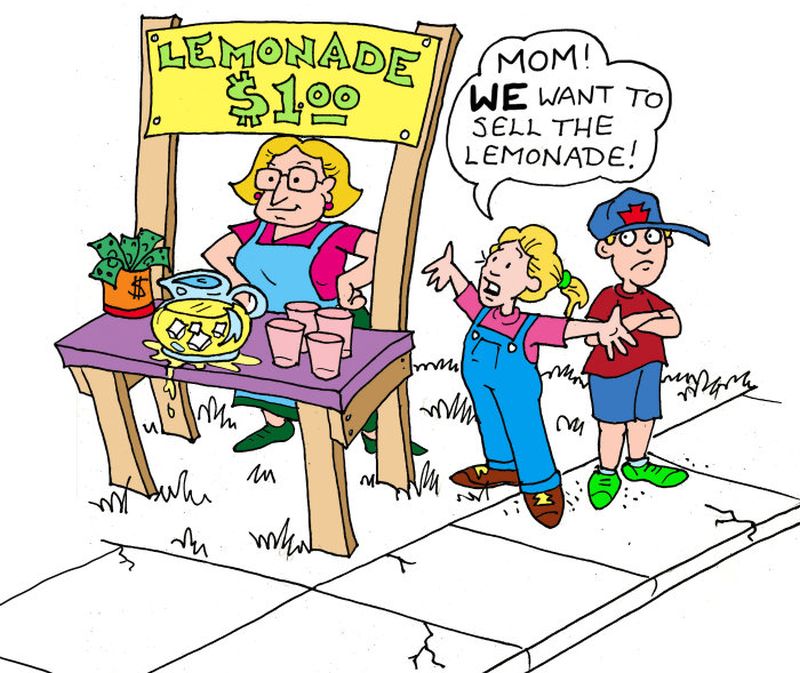
- Gabriela Gomez started kindergarten this year, and her mother has emailed or called the teacher nearly every day with questions and concerns about very minor issues. If the teacher doesn’t respond within a few hours (even during the school day), Mrs. Gomez gets very angry. She told administrators that she doesn’t trust the teacher and has demanded to be allowed to sit in the classroom and observe anytime she likes.
- Parker Peters is one of the brightest students in her fifth grade class, but her father is always pushing her to work harder. He tells Parker’s teachers they’re not challenging her enough, and regularly sends emails to administrators complaining that they don’t recognize his child’s brilliance. Parker has shared that he sits at her side every night while she does her homework, not allowing her a break until he thinks everything is perfect.
- Jayson Brown is in 10th grade. He’s a relatively good student but has some trouble making friends. His parents constantly get involved in his relationships, telling him who he should and shouldn’t be friends with. When Jayson has a problem with a friend, his parents step in and try to fix it. They do the same thing with teachers, never letting Jayson solve his own problems.
How does having a helicopter parent affect a student?
A few years ago, a teacher shared this story in the We Are Teachers HELPLINE group on Facebook:
“This year I have a student with helicopter parents. Mom puts a lot of pressure on her daughter! When she goes home, mom literally sits next to her and hovers over her shoulder while she works, pointing out errors and asking questions.
“Though I appreciate her concern and wanting to help (she takes education very seriously), her daughter is beginning to suffer academically due to the pressure. This is only a second grader I’m talking about! This girl is very bright, but she is now over-analyzing everything she does in class, particularly in math.”
This is a common observation from teachers: Helicopter parents generally make things worse for their students. And the research agrees:
- “Children with helicopter parents may be less able to deal with the challenging demands of growing up, especially with navigating the complex school environment. … Overcontrolling parenting when a child was 2 was associated with poorer emotional and behavioral regulation at age 5, the researchers found.” (American Psychological Association)
- “When helicopter parenting hinders development of self-control skills among college students, those students are more likely to experience school burnout—exhaustion from schoolwork, cynical attitudes toward their education, and perceived inadequacy.” (Florida State University)
- “Children with intrusive parents who had high expectations for academic performance, or who overreacted when they made a mistake, tend to be more self-critical, anxious, or depressed. The researchers termed this as “maladaptive perfectionism,” or a tendency in children of helicopter parents to be afraid of making mistakes and to blame themselves for not being perfect.” (The Gottman Institute)
Why do helicopter parents behave like they do?
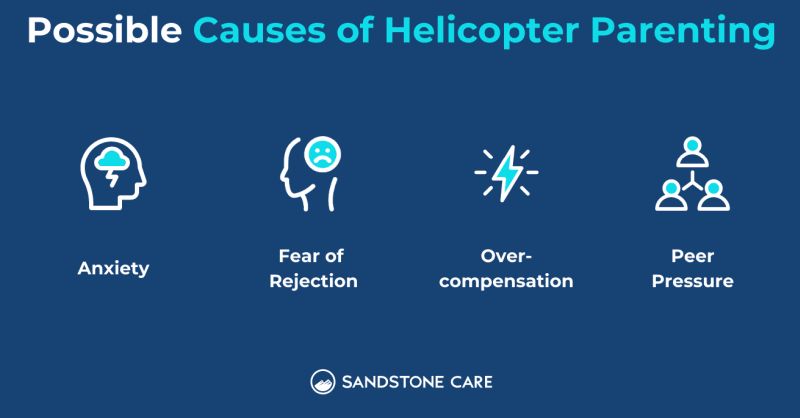
If you ask a teacher, they’ll nearly all say that they know helicopter parents are coming from a good place. A helicopter parent wants the very best for their child, an admirable trait. But their methods of getting “the best” often result in exactly the opposite. So why does a helicopter parent do what they do?
In an article for Psychology Today, two psychiatrists analyzed helicopter parents and found three main reasons for their behavior:
In all cases, helicopter parents tend to be driven by fear and anxiety. They may see their child as a mirror of themselves and worry that any failures or mistakes will reflect badly on them as a parent. Or they know that the world can be a scary place and fear that their child won’t be able to handle challenges well. Some even use their children as a way to achieve their own personal goals and unfulfilled dreams.
How do I know if I’m a helicopter parent?
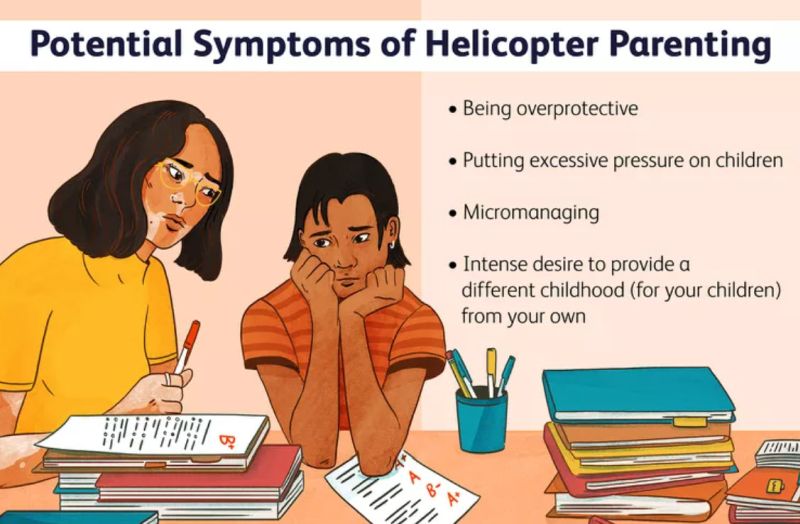
Parenting is a difficult job, there’s no doubt about it. There are a lot of ways to do it right, and what works for one family may not work for another. That being said, there are some definite characteristics parents can watch out for in their own behavior. Ask yourself these questions.
Do you:
- Try to protect your child from every possible danger or risk?
- Believe that your child’s bad behavior reflects poorly on you as a parent?
- Avoid letting your child make age-appropriate decisions for themself?
- Constantly monitor your child’s activities, needing to know what they’re doing at all times?
- Get involved in your child’s relationships with their friends?
- Remind your child to do tasks over and over again?
- Refuse to let your child fail or make a mistake?
- Contact your child’s teachers any time they face any sort of academic challenge?
- Care more about your child’s progress or achievements than they do?
If many of these apply to you, you might be a helicopter parent. Learn more about your parenting style with this quiz from the Washington Post.
What can teachers do when faced with helicopter parents?
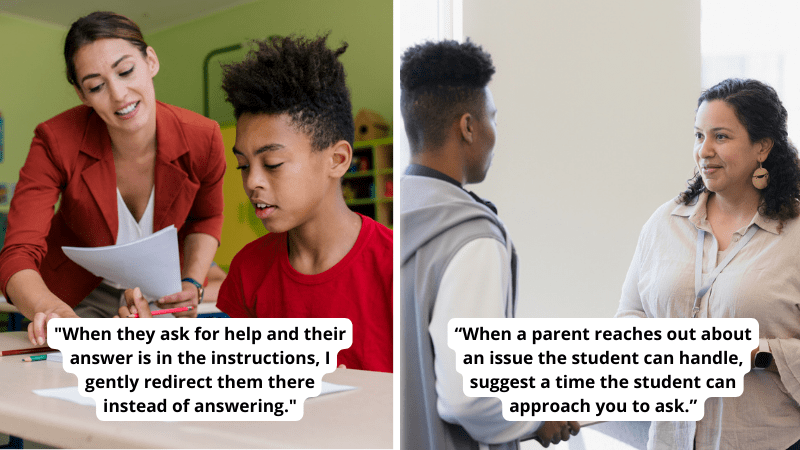
Teachers face a double problem with it comes to these parents. They have to navigate their interactions with the parents themselves, dealing with emotional calls, emails, texts, and meetings. But they also need to find ways to support helicoptered students, giving them the skills and self-confidence they lack. We’ve rounded up some resources to help you tackle both of these issues.
Interacting With Helicopter Parents
Start with these tips for dealing with these tricky parents:
- Listen to what they’re saying (and not saying): Practice active listening and try to understand the parent’s concerns. Identify actual problems, and work together to find solutions.
- Set boundaries: Don’t feel the need to respond to every message or call immediately, especially outside working hours. Give yourself time to think before you reply, and let parents know what kind of turnaround time they can expect from you. Don’t acquiesce to outrageous requests just to keep the peace.
- Encourage parents to do less: It can be a challenge to convince these parents that they can do less for their child and still be a good parent. Encourage them to foster a sense of independence and teach good decision-making skills.
- Provide alternate ways to advocate: Just as you might redirect an over-energetic child into more productive activities, do the same with over-involved parents. They might enjoy joining the PTA, helping schools to fundraise, or getting involved in student advocacy issues.
- Teach parents about SEL: One way parents can redirect their energies is to focus on social emotional learning with their child. If they teach kids concrete SEL skills, they’ll feel more comfortable letting them take risks as they grow.
- Advise them to let their child make mistakes: This might mean failing a test because they didn’t study, or skipping gym because they forgot their sneakers that day. Kids have to make mistakes before they can learn from them.
- Keep admin in the loop: You don’t have to go it alone! Let your administrators know what’s happening, and allow them to step in when you need a break or some assistance.
Find 5 smart ways to deal with helicopter parents here.
Supporting Helicoptered Students
Try these tips to help students with overbearing parents:
- Emphasize social-emotional learning: There’s a good chance they’re not learning these skills at home, so offer them additional assistance in your classroom. Try the activities found here.
- Teach perseverance: Many helicoptered kids give up at the first sign of trouble, since their parents usually solve problems for them. Learn how to foster perseverance in kids here.
- Develop problem-solving skills: When you never have to solve your own problems, you don’t even know where to start. Discover ways to teach problem-solving skills to helicoptered kids here.
- Communicate with students directly: When parents come to you with an issue, tell them you need the student to approach you directly instead. Kids need to learn to advocate for themselves instead of avoiding conflict.
- Encourage independence: Empower your students by assigning them classroom jobs and letting them take over regular tasks. Praise their achievements so they gain self-confidence.
- Listen and empathize: Helicoptered kids often know their parents treat them differently than their peers. Let them share their experiences, and connect them with support services like school counselors if you can.

